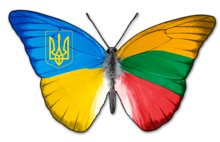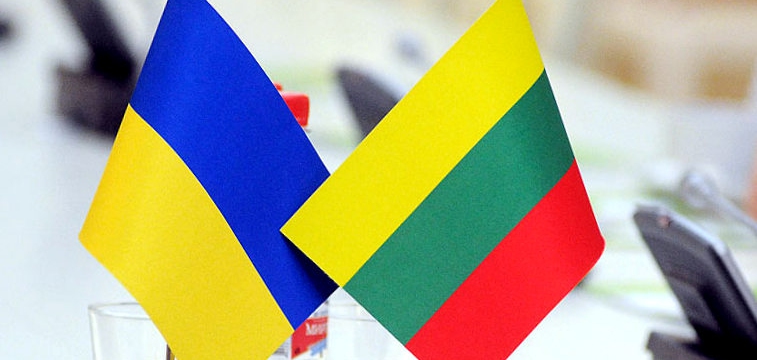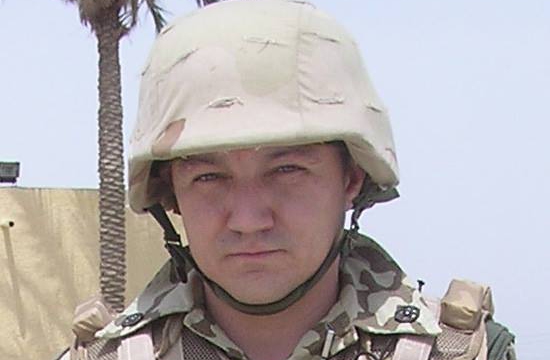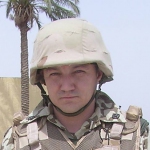On May 8th Lithuanian Parliament adopted a resolution for faster ratification of EU association agreement with Georgia, Moldova and Ukraine. In this resolution members of the Lithuanian Parliament also condemned continuous attempts of Russia to split territorial integrity of Ukraine, Moldova and Georgia states through escalation of internal conflicts and provocations of separatism in order to deter these countries from independent choice of direction in political and economical integration. (Lithuanian Parliament Press Office, BNS, ELTA, 15min, The News radio, unofficial translation)
Petras Auštrevičius, Deputy Speaker of the Lithuanian Parliament and Kazys Starkevičius, member of the Lithuanian Parliament on May 10-11th will take part in meetings with the Volodomyr Lytvyn, Deputy Head of the Verkhovna Rada Committee on National Security and Defence Policy, Ruslan Koshulynskyi, Vice-Speaker of the Verkhovna Rada, members of the Group for Interparliamentary Relations with the Republic of Lithuania. Petras Auštrevičius and Kazys Starkevičius will also take part in meetings with Dmitry Tymchuk (‘Information Resistance’ group), Vitali Klitschko, Leader of the UDAR Party, Mykola Katerynchuk, Leader of the European Party of Ukraine, Ambassador Jan Tombinski, Head of the EU Delegation, Petro Poroshenko, candidate in Ukraine’s presidential elections, and Yuriy Tereshchenko, Acting Director General of ‘Ukroboronprom’. (Lithuanian Parliament Press Office, BNS, ELTA, 15min.lt)
On May 8th, initiated by Lithuania and Ukraine, informational event for OSCE delegations, dedicated to address human rights violation in Crimea took place in Vienna. Giedrius Čekuolis, Lithuania’s Ambassador to the OSCE, stressed that human rights of national minorities, especially Crimean Tatars, situation in Crimea after annexation only got worse. Mustafa Dzhemilev, Leader of Crimean Tatars, which also participated in the event as a guest, expressed his concern that ‘Crimean Tatars are threatened due to their principal position about territorial integrity of Ukraine, boycott of referendum and are called extremists by pro-russian Crimea government.’ (Lithuanian Ministry of Foreign Affairs information, ELTA, 15min.lt)
Miloš Zeman, President of the Czech Republic, and Lubomír Zaorálek, Czech Minister of Foreign Affairs, refused to attend the Victory Day reception in Russian Embassy in Prague. (delfi.lt, 15min.lt)
On May 7th Jerome Vacher, IMF Resident Representative in Ukraine, said that ‘mission of the International Monetary Fund (IMF) will come to Ukraine at the end of June or at the beginning of July to evaluate state’s economical situation.’ (delfi.lt).
Victoria Siumar, Secretary of the National Security and Defense Council, in an interview to 15min.lt said that ‘Russia is preparing false referendums in Donetsk and Luhansk on Sunday and there’s a threat that Russia can try to repeat Crimean scenario and try to bring its army into Eastern Ukraine.’ (15min.lt)
Garry Kasparov, chess player and Russian opposition activist warned that ‘grievous days are coming to the world if the Head of Russia won’t be stopped.’ Garry Kasparov also thinks that Russian army isn’t so modern and powerful as Putin says (lrytas.lt). Read more in Lithuania Tribune: http://www.lithuaniatribune.com/67849/kasparov-in-vilnius-western-countries-start-to-realize-putin-will-not-stop-in-ukraine-201467849/.





